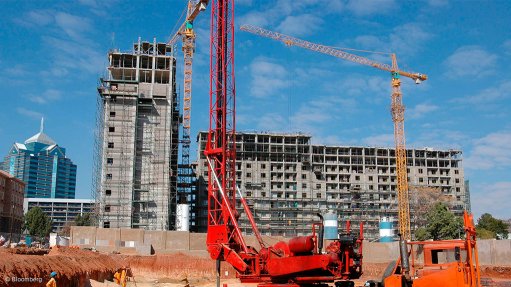
Photo by: Bloomberg
International consultancy and construction company Mace expects construction activity in sub-Saharan Africa to grow over the next two years, despite various risk factors that threaten to limit economic growth.
Mace says that the overall outlook for construction activity in sub-Saharan Africa is reasonably strong, with an average 6% a year growth forecast over the next two years, but warns that there is notable variation across the region.
This variation, driven in part by complex political and economic challenges in each nation, creates an element of uncertainty that could potentially destabilise markets and restrict growth.
This is particularly possible in countries with high levels of foreign denominated debt.
Nonetheless, ambitious and large-scale social infrastructure programmes are expected to support further growth, with housing and energy sectors set to attract significant funding across the entire region.
Ethiopia is leading in this regard, with construction activity forecast to achieve double-digit growth through to 2020.
Mace forecasts that construction activity in Kenya, Rwanda, Tanzania and Uganda will also grow over the medium-term.
“The cautiously optimistic outlook for construction demand across sub-Saharan Africa comes at a time when the costs of construction materials are rising and contractor capacity is already stretched.
“Together, these factors suggest that upward pressure on construction costs in the region will continue over the medium term, which will create a challenging procurement environment,” says Kenya-based MaceYMR MD Simon Herd.
In South Africa specifically, better economic prospects will hopefully drive a recovery in the construction sector in the second half of the year, following the election-induced hiatus in public sector investment.
President Cyril Ramaphosa’s stimulus package, unveiled in September last year, includes $30-billion to start a new infrastructure investment fund and should boost construction activity over the medium term, states Mace.